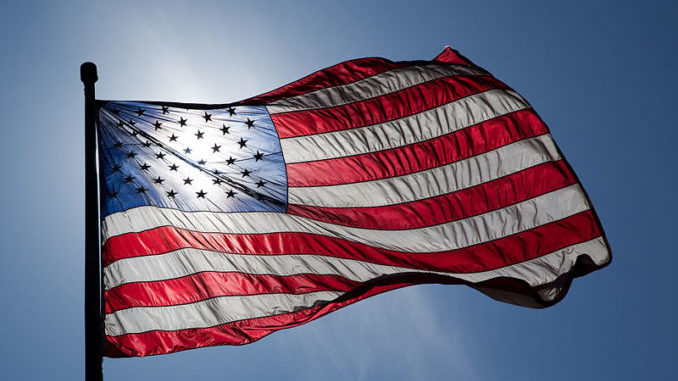
Note from Steve: This is an essay submission for Steve’s Great American Essay Challenge. These will run nightly for as long as there are submissions. Submit your own to earn a TNB coffee mug and maybe even more.
The essays will remain anonymous until the end of the challenge. Please do not claim this essay until we are ready for that reveal.
An Historical View of the Great American
The Dark and Middle Ages were a difficult time for humanity. Church based paranoia and superstition limited human progress and intellectual thought. The feudal system held societies captive and small isolated fiefdoms limited communication and the open exchange of ideas. During this desperate era, humanity seemed doomed to a future of basic subsistence living. As centuries passed slowly mankind began to pull itself out of despair by using the asset that no other earthly creature possesses, intelligence.
As a thirst for intellectualism slowly piqued the Western World, a movement called the Renaissance emerged. The Renaissance marked the rebirth of cultural curiosity that had been largely absent since the fall of the Roman Empire one thousand years earlier. Through this cultural revitalization came an awakening that strayed away from the regular superstition of the past and steered thought to forward looking secularism in science and education.
Not surprisingly scientific enhancements spawned by new ideas encouraged empiricism and observation, leading to evidence backed conclusions. Through these advances daily living improved and, since life became slightly less onerous, many had additional time, resources and ability to invest in their individual talents including music, art, philosophy and even education.
Eventually individualism supplanted the small scale feudal communal way of life. Many became artisans and craftsman. The economic system shifted from agrarian communism towards self-reliant entrepreneurs who utilized the exchange of goods, services and ideas to support their burgeoning way of life.
Not only did advances in science, math, and art occur during this time but the entire way that individuals viewed their relationship with their church. As individuals had increasingly more knowledge, mobility and liberty they began to reject the burdensome payments to the church to reduce God’s punishments for sins, known as indulgences. There also was resistance to the concept that common people could not have a direct relationship with God without the help of Catholic priests. This view largely confronted the traditional methods of religious disenfranchisement and subjugation. In essence, the idea that the individual could think and interpret religion for themselves emerged, leading to the reorganization of Christianity through the Reformation.
Of course the lessons learned from the Renaissance and Reformation proceeded into the Age of Enlightenment that eventually imbued Europeans with the intellectual and philosophical outlook that many political and social systems are based on today. The open dissemination of ideas allowed the philosophies of Jean-Jacques Rousseau, Adam Smith and Rene Descartes (I think, therefore I am) to shape new governments, republics and societies.
In fact, the seminal pieces of Liberalism were the direct source philosophies (along with early Greek democracy) for the foundation of America’s constitutional system and the separation of church and state.
So what the hell does any of this have to do with “what makes a Great American?”
Today in America we find many who are drawn more towards Philistinism than towards Renaissance. More towards religious intolerance than towards acceptance. More towards superstition and ritualism than science and fact. More towards tribalism and communalism than integration. More towards an economic system of a few wealthy kings manipulating impoverished hordes of subjects than an open economy of competition among equals. We face red-hatted denizens who want to push us away from the philosophical Liberalism of the Enlightenment and back to a darker, solemn, isolated existence.
We need an American Renaissance to shift our perceptions of who we are and what Americans can accomplish together. A Great American is a modern-day Renaissance Man (or woman). One who shuns dogma and encourages intellectualism. A rugged individual who relies on common sense rather than tribalism. A person who relishes competition in a free market and uses creativity as vessel to betterment. Someone who can speak truth to power to their community, church or government when these institutions overreach. A person who craves education and knowledge. A dynamic individual who has the ability to learn and appreciates the learned. A person who views culture as more than political conspiracies and intrigue that they hear from their buddies at the bar.
Simply, a Great American is one who cannot be persuaded by fear to look inward and hide but one who has the courage to look to the horizon, unafraid of what and who they will see. Eager for what they will find.
The Renaissance was a rebirth of humanity that pushed us forward to a better place. In America we need a re-rebirth and a legion of Great Americans who resemble the dynamic individuals of the Renaissance who dragged humanity out of the abyss, not with deceit, manipulation, fear and force but with ideals, curiosity, acceptance, good faith and intellectual honesty.
